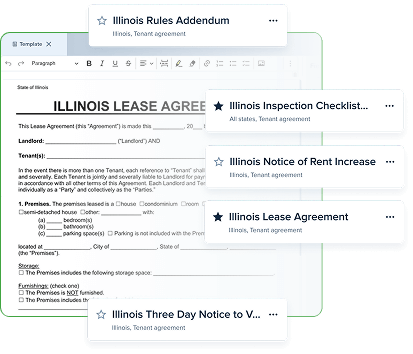Rules Addendum
A House Rules Addendum is a legally binding agreement that both landlords and tenants must agree to and sign - a landlord cannot add an addendum to the lease with the tenant’s permission.
Addendums are documents that amend the original lease agreement and include rental guidelines.
Rules Addendum
Amend the original lease and include rental guidelines.Generate a document with our document builder
Customize it using auto-fill elements if needed
E-sign and require signatures from tenants
What you need to know
How do you write a lease addendum?
The substance of the addition or the policy itself will determine how you construct the lease addendum.
If you're developing a pet policy lease addendum, for example, make sure to mention which animals are and are not permitted, any pet-related restrictions and fees, and repercussions for the tenant if these agreements aren't followed.
What should be included in the house rules addendum?
Here is the list of mandatory items that should be included in the house rules addendum:
Landlord's name
The rental property address
The tenant's name
Relevant policy/information
Consequences for breaking any contract agreements
A place to sign & date for both the landlord and tenant
Typical house rules addendums should include detailed pest control obligations, pet regulations, and subleasing requirements, among other things.
House rules addendums give more information, describe particular policies, or change the original lease, which should also be included in most circumstances.
As stated previously, a house rules addendum can be presented for unforeseen circumstances (i.e., a tenant needing to defer rent payments).
When does the house rules addendum become effective?
The policies and rules set out herein will be enacted by the Owner or Management and will take effect on the date specified on the addendum or thirty days following distribution of a copy of the amendment, or amended regulations, to the Tenant, whichever comes first.

